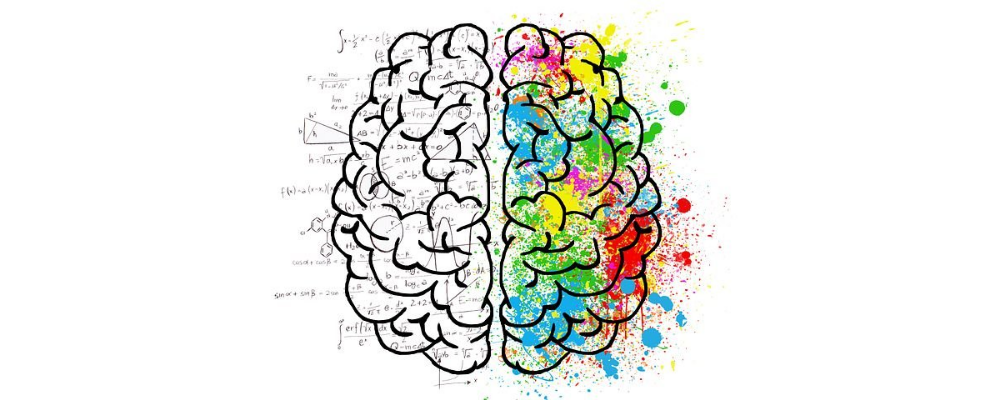Artificial intelligence (AI) is the future and has a great potential to transform businesses, economies, and societies.
No wonder AI is one of the most sought-after skills in the technology domain that has influenced almost every sector, from automobile, manufacturing, and medical to cybersecurity, software, and IoT.
Organizations are leveraging AI rapidly to build useful, cutting-edge applications and services that can improve the quality of life, make business operations more efficient, and reduce complexities.
Ultimately, the demand for AI continues to increase. According to SEMrush, the global AI market will reach $190.61 billion by 2025.
So, if you want to build a career in AI, it’s the best time to get started. It will give you broader career prospects, and you can work with organizations from across the world on exciting projects. But for this, you must have the right skill sets, both technical and non-technical.
In this article, I’ll introduce you to some of the in-demand skills in AI that you can learn and upskill yourself to build a brilliant career in artificial intelligence.
Let’s get started.
Technical Skills

A career in AI demands professionals to master some technical skills to give you a strong base. So, let’s talk about some of those technical skills.
Domain Knowledge
Knowledge and specialization in artificial intelligence are needed if you seek a career in AI. You must have expertise in neural networks, machine learning, deep learning, etc.
Having domain knowledge helps you understand the industry more with risks and challenges that you need to address. It will also help you develop innovative technologies that can address those challenges. You can apply your knowledge to create AI-enabled technologies and services that can somehow make lives better and support businesses.
Programming Languages
Sound knowledge and proficiency in programming languages such as Java, R, Python, C , JavaScript, etc., are crucial for every AI professional. You must be able to write code based on your needs and use-cases.
- Python: Python is widely used in AI and machine learning due to its simplicity, code reliability, and faster execution. It will help you write complex algorithms and requires minimal code. It comes with many pre-made libraries for advanced computing and scientific computation.
- Java: Java is also used extensively in AI for implementing mappers and reducers, intelligence programming, genetic programming, search algorithms, neural networks, ML solutions, and more.
- R: You need R for statistical computation, numerical analysis, machine learning, neural networks, and more. R allows you to collect and organize data sets, apply ML and statistical functions, and use matrix transformations and linear algebra for data processing.
- C : The good old C is used in AI to enable procedural programming and manipulating hardware resources. You can use it to develop operating systems, browsers, and video games. Its flexibility and object-oriented functions make it highly useful in AI.
In addition, it would help if you also had a deep understanding of computer architecture, data structures, optimization algorithms, graphs, trees, and more. And if you can learn more than one language, it can be an added advantage as you can contribute more since organizations emphasize professionals with multiple skills.
Frameworks and libraries: Apart from programming languages, you must also understand various frameworks and libraries. It will help you write quality code at a faster speed. Some of the highly useful in AI are TensorFlow, SciPy, NumPy, Scikit-learn, Apache Spark, PyTorch, and more.
- TensorFlow is an open-source machine learning platform with a comprehensive and flexible set of tools, community resources, and libraries to help researchers develop sophisticated ML-powered applications with ease.
- SciPy is an open-source Python library used for solving scientific and mathematical issues. It helps users manipulate and visualize data using various commands.
- NumPy is a Python-based package used for scientific computing and advanced mathematical operations while handling massive data sets.
- Scikit-learn is a powerful Python library for machine learning and has lots of ML and statistical modeling tools.
Mathematical Knowledge

AI professionals work extensively on algorithms and applied mathematics. This is why you must have strong analytical and problem-solving skills along with mathematical knowledge so you can efficiently solve AI problems.
Mathematical skills like linear algebra, statistics, probability, graphs, optimization techniques, etc., are desirable. You can utilize these skills to solve problems and create algorithms based on the requirements.
- Linear algebra: Linear and abstract algebra form the basis of many parts of AI like machine learning and computer vision. It involves matrices, vectors, tensors, and others.
- Statistics: Statistical is another vital subject that you need to master if you want a bright career in AI and ML. It involves data collection, interpretation, and analysis. It coincides with data science, but you need statistical skills to understand the patterns.
- Probability: Probability is an essential part of artificial intelligence. Hence, you must possess sound knowledge of probability and probability distribution to have a smooth start in AI. It can be used on the discriminative and generative models, support vector machines, etc.
- Graph: Knowing how to look at graphs and understand what it conveys is needed in AI. It is an integral part of AI, and you will be constantly exposed to analyze data by looking at different graphs.
Machine Learning
Machine Learning (ML) is a subset of artificial intelligence. It is the study of computer-based algorithms capable of learning and improving itself using data and through experiences. ML algorithms create models based on a particular data sample, called training data, to make decisions and predictions.
The knowledge of ML is needed in artificial intelligence as AI empowers a computer or system to behave intelligently. ML is a process that teaches the machine to be intelligent and implement its potential in real-time tasks and problems.
ML is used in various applications, including computer vision, email filtering, medicine, speech recognition, and more. It is also associated with computational statistics to make accurate predictions with the help of computers. Some of the everyday examples of ML are search engine suggestions.
Deep Learning

Deep learning is a branch of machine learning and data science that mimics how humans gain specific knowledge. It includes predictive analytics and statistics and leverages different layers to gain deeper features from a sound or image. With higher layers, detailing would be more nuanced.
Deep learning can automate predictive analytics, and its algorithms are arranged in a hierarchy of increasing abstraction and complexity. Here, each algorithm implements a non-linear transformation to its input. Next, it uses its gained knowledge to create an output or statistical model. It will continue iterating until its output has achieved an accuracy of the accepted level. Thus, there will be many processing layers that data needs to pass through to be refined and accurate.
Application: Deep learning has a wide application in various fields and is highly beneficial for data scientists in collecting, interpreting, and analyzing huge data volumes with ease and speed. Some of its applications are face recognition, speech recognition, enabling vision in driverless cars, virtual assistants, etc.
Neural Network Architecture
Neural networks are a part of Deep Learning and are inspired by human brain structure. They are a network of artificial neurons that are complex and developed to process several inputs to produce one output. Neural networks mimic human brain-behavior to solve complex problems. They are used for adaptive control, predictive modeling, regression analysis, pattern recognition, data processing, and trainable applications.
In this architecture, the input data goes through various layers of artificial neurons stacked to produce the output.
Application: Neural networks also find applications in various sectors such as marketing, healthcare, and more. Examples are speech recognition, vehicle control, game playing like chess or racing, sequence and pattern recognition, medical diagnosis, data mining, financial applications, email spam filtering, and more.
Big Data and Distributed Computing
Predictive and data analysis in AI involves a large number of datasets that need higher computational resources. Using a single system to achieve this kind of computation may not be sufficient. Therefore, concepts like Big Data and distributed computing are helpful.

- Big Data is a technology that involves extracting, managing, and analyzing an enormous amount of data efficiently. This data needs high computation resources and offers excellent statistical power. It is used in user behavior analysis, predictive analytics, and other analytical needs involving large data sets.
- Distributed computing is a branch of computer science involving distributed systems whose components are situated on various networked computers coordinating and communicating their actions by exchanging messages. Its applications are multiplayer online video games, peer-to-peer (P2P) applications, etc.
So, if you want a brilliant career in AI, it would help if you upskill yourself with these technologies. Big Data and distributed computing can help you develop AI-based state-of-the-art products and services. You can also gain knowledge of frameworks like Hadoop, Apache Storm, Spark, and Flink.
Signal Processing Techniques
Signal processing is another desired skill that organizations may look for in professionals. Machine learning involves feature extraction to transform pixel values into some meaningful information. And to achieve this, you must know how to solve problems using signal processing techniques. It may include time-frequency analysis, convolution, Fourier Analysis, and other AI concepts.
Signal processing is a subfield of electrical engineering that emphasizes analyzing, synthesizing, and modifying signals like image signals, sound waves, and other scientific measurements. These techniques enhance storage efficiency, transmission, quality and detect some components in a signal.
Applications: The applications of signal processing are feature extraction like speech recognition and image understanding, audio signal processing as in music or speech representation, image processing in computers and digital cameras, video processing in moving pictures, wireless communication, and source coding techniques like image compression, video compression, and audio compression.
Shell Scripting

Shell scripting refers to a computer program run by a command-line interpreter called Unix shell. Scripting languages involve various shell script dialects. Some common operations that shell scripts perform are file manipulation, printing text, and program execution.
Shell scripting is another vital component of artificial intelligence used for pattern recognition. When you advance your career in AI, you will get to the point where most AI data processing takes place on Linux-based machines. So, if you are not familiar with UNIX tools and operations and commands like SSH, grep, find, awk, sort, tr, cut, etc., it will be challenging to work with AI functions.
Hence, it would be great to learn about shell scripting and get the hang of these topics to work well with Linux-based tools and operations. You can also learn about different shells such as KornShell, Powershell, Perl-like shell, Z shell, and more.
Cluster Analysis
Cluster analysis is the task of clustering or grouping objects. It’s done in such a way that the objects in a group are more similar to one another than those in another group.
Clustering can be done by algorithms that differ in terms of their components and how efficiently one can find them. Given its wide usage across various sectors, you can learn this skill of clustering and start building your career in artificial intelligence. It will give you wider scopes, and you can develop innovative technologies for various industries and businesses.
Application: It is used in exploratory and statistical data analysis for applications like pattern recognition, information retrieval, image analysis, data compression, image analysis, sequence analysis, machine learning, and computer graphics. In computer science, clustering is used in software development, anomaly detection, natural language processing, and more. Its other applications are medical, marketing, business, search result grouping, crime analysis, education, and more.
So, all the above discussed were technical skills that you need to master if you want to build a career in artificial intelligence.
But this is not it.
Even if you have deep knowledge and expertise in these technologies and technical skills, it would hardly be used if you can’t implement them properly. This is where soft skills come into play.
Soft Skills

Soft skills are necessary at every part of your professional journey. You must have the required interpersonal skills to work efficiently, manage everything with ease, implement the knowledge into your tasks correctly, and collaborate well with others.
Soft skills will help you deliver your thoughts properly to your team, stakeholders, and others you communicate with. You can also make better decisions quickly that can benefit your project and the overall team.
So, let’s talk about some of the essential soft skills you must develop to become a better professional, no matter your expertise and knowledge level.
Communication
Communication skills are always desirable in every profession. It means the ability to communicate clearly and accurately your ideas to others using a proper and suitable tone along with body language while delivering your message.
You need to be a good communicator so you can communicate your innovative ideas effortlessly with your managers and fellow teammates or clients. But if you lack communication skills, you can feel trouble sending your message across and explaining what you want to.
As a result, your peers won’t understand your message and might be confused at specific points. And the chances are your ideas won’t be considered just because you could not deliver your message correctly.

So, it would be helpful if you could work on your communication skills. You can either practice it with your friends, family members, or colleagues or take up a course to improve your skills. The more you practice, the more you will improve at communication skills.
Learn the basics of business communication to ensure you use the right words and correct tone while delivering your message. You can also learn hand movements, body language, and proper gestures to communicate effectively with others. In addition, you can learn multiple languages if you deal with international clients. This will be a bonus.
Decision Making
Decision-making skills are highly crucial. You must be able to make the right decisions at the right time to save your team and project from any harm or hassle and ensure the success of your projects.
AI projects involve a lot of analytical skills, statistics, and predictions, and you must be able to do what is suitable for your project and everyone involved in the team. You must have good management skills that will help you during decision-making. It requires a sharp, far-fetched mind, focus, and an eye for detail.
Furthermore, you must be able to calculate the risks and challenges if you make some decisions. You must also know the consequences of certain decisions and how they can affect your team and project. Hence, all your decisions must be made in such a way that can maximize the productivity and success of your projects, ensuring your clients and customers are happy while minimizing the risks.
Analytical Thinking
Analytical thinking is a must-have soft skill for all AI professionals. You must be able to understand and feel the problems users might be facing and come up with an effective solution.
AI professionals must have excellent problem-solving skills, analytical thinking, and a curious mind to know more, learn more, and implement more. It will help you develop innovative ideas and plans that can solve a problem and build cutting-edge technologies that can benefit people. You must also be eager to upskill yourself with new technologies and tools to help you while planning and developing.
Creativity

Creativity is a demanding skill that AI professionals must have. You must devise unique ideas and think out of the box if you need to. It, in fact, nowadays, is a highly sought-after skill in every field. And if you are an AI professional, you must have it.
AI professionals must come with creative ways to solve a problem in such a way that is easy, effective, and feasible. It will help you develop unique products and services and make them useful for users.
Conclusion: The Future of AI Professionals
According to LinkedIn, hiring AI professionals has increased by 32% since 2019 despite the grave scenarios due to the pandemic. And this growth continues to surge as the demand for AI-powered applications and services is on the rise.
A CNBC report states that the median salary of data scientists is US$ 100k-130k while that of AI engineers is US$124k-150k. Hence, the future of AI professionals seems bright. And if you are interested in this field, now is the time to start building your career around it. You can become a data scientist, AI engineer, ML engineer, business intelligence developer and pursue other related jobs in AI.
So, start building your career in AI and develop the technical and non-technical skills discussed above. They will help you launch your career smoothly and make sure you propel high with maximum velocity.
All the best!
You may also be interested in Online Courses to Learn AI.



